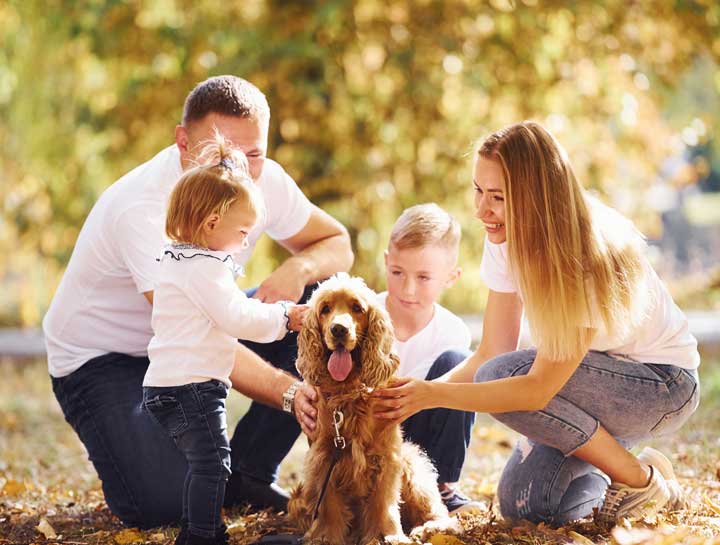How to Prevent Intestinal Parasites in Your Colorado Dog

In our last blog post, we discussed common dog parasites in Colorado dogs.
This week, our vets want to chat about ways to prevent intestinal parasites, so you can keep your dog (and family members) healthy.
Here are seven tips to help prevent intestinal parasites in your dog.
A little prevention goes a long way!
1) Get your dog “dewormed” as a puppy.
Deworming is a quick and easy process, and it’s part of our normal puppy vaccination schedule.
Our veterinarians will give your pup several liquid treatments to get rid of any worms your pup may have picked up from his or her mama or the environment.
2) Use heartworm medication.
Heartworm prevention medications can help prevent different types of intestinal parasites, as well as heartworm disease.
They’re usually greater than 90% effective.
They’re also guaranteed by the manufacturer.
If your dog isn’t on heartworm prevention, you may want to consider it.
3) Pick up your dog’s feces quickly.
It takes about 24 hours for the parasite larvae in a dog’s stool to turn into a contamination source.
So, if you pick up your dog’s poop quickly, you avoid that risk. You also help keep other dogs safe too.
(Your dog may be a carrier, and you don’t even know it!)
4) Practice good hygiene after interacting with your dog.
Wash your hands after playing with, feeding or picking up after your dog.
Kids tend to be at the highest risk of picking up parasites from dogs, so encourage your kiddos to do the same!
5) Limit your dog’s exposure to higher risk areas (within reason).
In our last post, you may have noticed a common theme.
Places that have dog droppings (or the remnants of feces) tend to be areas where your dog can get parasites.
Within reason, you may want to limit your dog’s exposure to dog parks and other places that animals frequently visit.
6) Take fresh water for your dog on hikes.
If you’re out enjoying all that Colorado has to offer with your dog, be sure to take enough fresh water for your dog to drink.
You’ll keep your dog hydrated and help lower your pup’s urge to drink infected stream or pond water.
7) Avoid letting your dog drink from — or defecate in — water or streams.
Dogs will be dogs — we get it!
But as much as you can keep your dog on track, the better off you’ll be.
